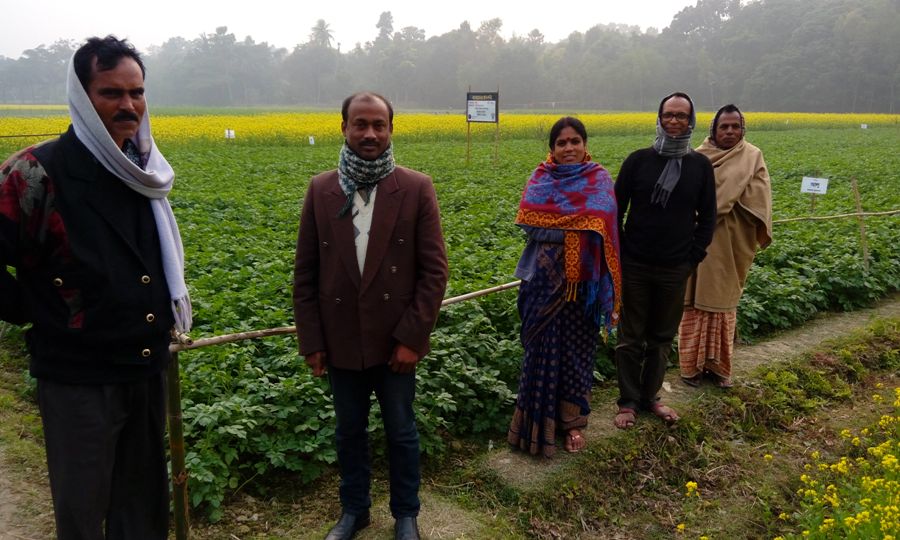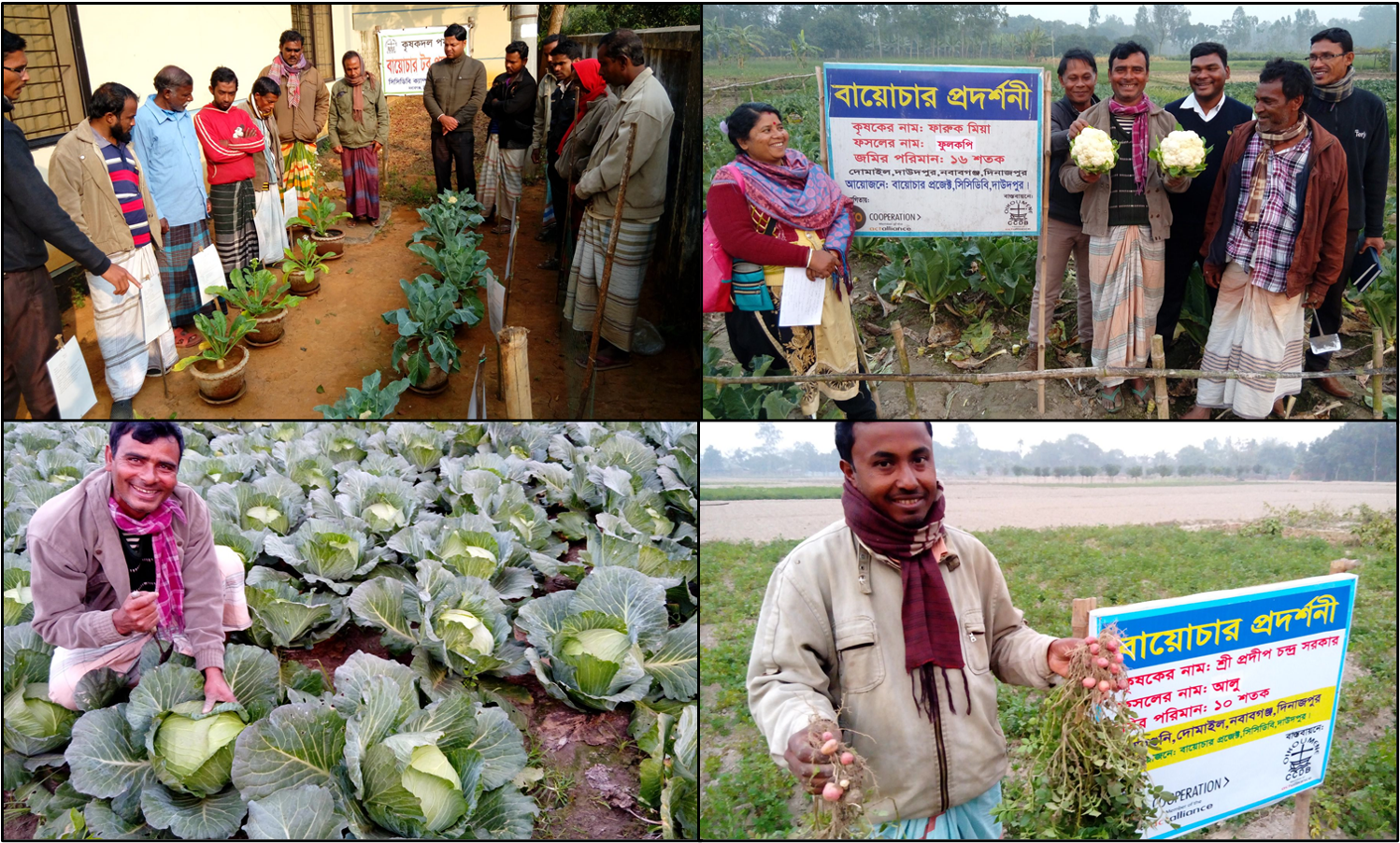



Char is carbonized organic matter that is produced by pyrolysis.
Biochar is char used for biotechnology, such as in agriculture.
Charcoal is char used as fuel.
Biochar has some important properties:
- Resistance against biological and chemical decomposition, so it lasts in soil for centuries and can be used to store atmospheric carbon.
- A high surface area
- Negatively charged surfaces and some positive charges with can hold soluble plant nutients such as nitrogen and potassium and other minerals.
In Bangladesh, the soils are often low in soil organic matter, because the warm-humid climate and agricultural tillage promote organic matter breakdown. Soil that are low in organic matter become hard and open pore space. Crop growth can be severely limited.
Given the excellent climate from growing crops, improving the organic matter in Bangladeshi soils can have profound results. Biochar can do this because it doesn't break down. Instead, it combines with manures, composts and soil organic matter to from new, stable humus.
By increasing soil organic matter there is:
- An increase in soil crumbs and large pore space
- Increased aeration
- Increased water penetration
- Increased plant-available water
- Increased soil life
- Increase root growth and crop yield.
There are several key steps in getting biochar into common use:
- Scientific knowledge and practical knowledge of the use of biochar in Bangladeshi agriculture.
- Desimination of the knowledge to farmers
- Farmers' practical experience with biochar, so that they can evaluate what they would be prepared to pay for it.
Farmers get excited about biochar once they witness the effects of biochar in research experiments, agricultural extension field trials, and local farmer trials.
In one case, after a tour of a farmer's field plots, some farmers came back later and carried off baskets of his soil.